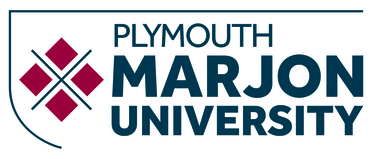Re-Imagining Physical Activity: County Sport Partnership Responses To UK Public Policy Shifts
Ziakas, Vassilios and Beacom, Aaron (2017) Re-Imagining Physical Activity: County Sport Partnership Responses To UK Public Policy Shifts. In: 25th EASM Conference 2017, 5-6 September, 2017, Bern, Switzerland.
Full text not available from this repository. (Request a copy)Abstract
Aim The UK Government’s recent public policy shift, encapsulated in the Sporting Future policy document and articulated through Sport England’s strategic response Toward an Active Nation, signals a fundamental shift in the approach to engaging more physically active lifestyles. It envisages such engagement as predicated on forging partnerships outside the traditional sporting community as a means of promoting behavioral change amongst those alienated by the mainstream sporting culture. As in any policy shift, the management of funding streams becomes a key tool in the pursuit of these new priorities. In response to this shift toward physical activity broadly defined, County Sports Partnerships (CSPs), as key local coordinators-providers, must re-imagine their mission and recalibrate their objectives. The study aims to enhance a critical understanding of this ongoing process. It considers CSP responses to the waxing and waning influence of key strategic partners and the emerging dichotomy between ‘sporting’ and ‘physical’ cultures. It suggests approaches to the management of these tensions and pinpoints subsequent research priorities required to better understand the emerging physical activity landscape. Background Strategies for increasing sport participation are characterized by the traditional dichotomy between sport narrowly defined as organized/structured and physical activity broadly defined as unstructured/recreational encompassing different forms of physical expression. The division is apparent within the institutional landscape, which shapes the delivery of sport and physical activity and subsequently constrains the development of integrated approaches. The fragmentation of organizational actors along with the continual change of local sport and physical activity priorities, inhibit the development of stable collaborations between agencies involved in sport and physical activity (Lindsey, 2009). In the case of the UK, the activities of multiple stakeholders operating locally against the backdrop of a rapidly changing policy and funding environment, generates additional complexity. For example, the delivery of sport services by Local Authorities raises issues around accountability, equity, service quality and sustainability (King, 2014). At the same time, the role of CSPs is construed in a number of contrasting ways by partner agencies, creating the potential for misunderstanding over the shifting priorities for sports development (Mackintosh, 2011). Grix and Phillpots (2011) note the paradox that while CSPs were established to facilitate the delivery of sport policy at regional/local level by responding and adapting to local conditions, this has resulted in a hierarchical mode of partnership that rests on resource dependency and asymmetrical network governance between the Government and stakeholders in the sport policy network. These issues create concerns about the effectiveness of the Government’s physical activity and sport participation strategy at the local level; concerns that are brought into sharp focus at a time of rapid change. Specifically, intersecting roles/responsibilities within the sport policy network may perpetuate tensions between affiliated entities manifest as distrust and fragmentation, or misalignment over the changing sports development objectives. Consequently, the nature of sport governance, as executed from national to local level, causes operational challenges for CSPs. Such network entities, while attempting to achieve similar objectives, have different strategic and operational plans that may not facilitate a whole-of-sport perspective in relation to the creation of shared understandings across a sporting network (O’Boyle & Shilbury, 2016). Indeed, duplication of roles/responsibilities between national sport governance and the CSP network is evident in cases where efforts have sought to develop policy approaches in areas like public health, volunteering and workforce. Methodology This is an exploratory case study based around the experiences of two CSPs in the South West of England and involving their key partner organizations. The research employs a qualitative approach; based around a series of semi-structured interviews with middle and senior managers operating across a number of stakeholder bodies. A standard protocol for qualitative content analysis is used to enable pattern-matching of emerging themes through a constant comparison method and thereby extract a thematic structure detailing the issues CSPs are facing. 108 Discussion and implications The study sheds light on developing responses to manage sport partnerships in time of changing policy priorities. The mandate of creating active lifestyles requires the exploration of the policy trajectory, appropriate mode of governance and local service delivery models. Conceptually, there is a need to address the dichotomy between sport and physical activity, perhaps synthesized as physical culture. This involves the rebranding of CSPs centered on physical activity, while re-thinking roles, responsibilities/parameters and partnership-building as shaped by the funding imperative and the subsequent partnership responses to the new sports/PA environment. Within the complex sport policy environment, we need to find the means for better connecting national sport-PA participation policy with local network entities and non-sporting sectors.
| Item Type: | Conference or Workshop Item (Paper) |
|---|---|
| Additional Information: | Official URL links to conference web-page for information only. |
| Keywords: | Management, Sports, Education |
| Divisions: | Sport |
| Depositing User: | Ms Alice Primmer |
| Date Deposited: | 03 Oct 2017 10:49 |
| Last Modified: | 22 May 2019 11:22 |
| URI: | https://marjon.repository.guildhe.ac.uk/id/eprint/16145 |
Actions (login required)
 |
Edit Item |

